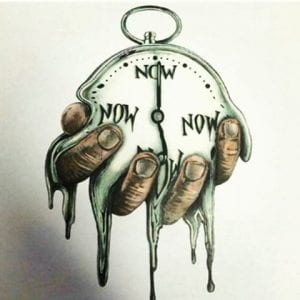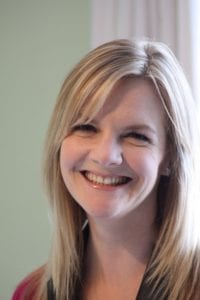Dr Richard Pancost – Professor of Biogeochemistry, Head of School for the School of Earth Sciences and a speaker from a former Academic Journeys event talks on the Bristol Clear blog about his personal career story. Richard talks on what sparked his passion for his subject, the thrills vs the sacrifice of academic life and the decisions that have led him to where he is now.

What I do:
I study how the Earth works as a system, how all of the biological, climatic, geological and chemical components interact today and how they interacted in the past. I was also Director of the Cabot Institute, which was a chance to not only work across disciplines and research environmental problems but to support a wide range of academics and partners studying solutions to those problems. Currently, as Head of School, I have all sorts of new obligations but am particularly enjoying connecting to a new group of amazing students.
Why Academia?:
How I ended up in academia and even higher education is a complicated question. Part of it was because I was good at it: I was smart, good at exams and course work and got good grades. Part of it was because I loved it; I followed every Shuttle launch and was glued to the television as Voyager 1 and 2 whipped past Jupiter and Saturn. And part of it was because it could get me out of poverty. I try not to overly mythologise growing up on a small dairy farm in Ohio, but I did love it. I loved working outside and working with my family. But I also hated the machinery, the brutality of it; the ceaselessness of farm life, no matter if you are sick or if there is a heat wave or a blizzard; the uncertainty, the worry, the continuous worry about the weather and the bills. It seemed like we were always talking about bills – for the farm equipment, the mortgage, the water and electricity, the dentist and the doctor….
So university always seemed inevitable. I could go. I wanted to go. I needed to go.
College was fantastic. I loved the intellectual freedom and the variety. My god, especially the variety. Then and now, that has to be one of the most amazing things about academia. Every day is different. Every hour is different. I had come to college to study astrophysics. Or political science. Or literature. In the end, I studied geology. I loved it all. [During the summer after my Freshman Year, with discussions of environmental crises beginning to trouble the news, with my family’s farm seen in a new light after being away for a year, and with my interest in both science and politics growing, I decided I would merge my interests. I would study geology and then go on to Law School and become an environmental lawyer.
However, it also took a long and awkward time for me to fit in, this farm boy at a big university, first generation, working class, a bit of a country hick. I had support, but I wish that support had been more aware. I wish that they could have seen past my good grades and enthusiasm for scholarship and seen the kid who was suffering from anger and anxiety. I wish they could have seen that my bravado was a lie and that my cuts and bruises were a sign of someone using sports and contests to inflict self-harm. I wish that I had been more self-aware. I wish that I had realised that some of my actions were signs of self-doubt, fear of appearing foolish or uncool, and anger at being mocked and poor and unable to afford what others could.
But friends – even those who inadvertently made me feel that way – supported me. Lecturers championed me. And helped me financially. They paid me on internships and work study and once, when money was really tight, even to paint their house. And they taught me with passion and love for the subject. They gave me good grades; and when I was complacent, they gave me my first bad grades. They were patient and then impatient and patient again. And finally, they gave me advice, support and wisdom. I graduated top in my class and won a PhD Fellowship to the Department of Geosciences at Penn State.
There are two stories that explain why I went to graduate school rather than becoming an environmental lawyer, and they are both true in their own way. In the first, Geology stole me from that path by showing me a stunning and beautiful world: I found my first fossil in the Cleveland Shale in Rocky River Park; I felt my first sense of wonder at geological time in an outcrop teeming with Ordovician brachiopods and trilobites in the Cincinatti Arch; I marvelled at the forces that had shaped the Appalachian Mountains. And then, in the summer of 1991, my field project in the Wind River Mountains of Wyoming, one of the most beautiful parts of the world, revealed to me 500 million years of Earth history over the course of an exhausting, exhilarating, sweaty, blistering, eye-opening summer.
And the second story? I would have had to go further into debt to attend Law School, whereas graduate school would pay me a stipend. That’s all. You don’t always get to make your own choices.
My career path / the big decisions:
I loved graduate school, but the first two years were a battle. A battle to flip from being a straight-A student who had excelled at learning and tests, who could solve problems and equations to a scientist who could conceive new ideas, new questions and design the experiments to test them. I had a brilliant supervisor – Kate Freeman – but also a network of mentors and advisers across the department who tolerated my fumbling journey, pushed me at times, and let me make a few astonishingly poor decisions – but not too poor. I was allowed to learn and to fail and learn again. And it was frustrating and it was amazing and always always always interesting.
And thrilling. Nothing is as thrilling as discovering something, whether it be something fundamentally new, like a new biogeochemical pathway or a new compound, or even just being the first person in the world to analyse a particular rock. And related to that is the thrill of having an idea, nursing it, testing it, patiently, rigorously and then proving it right – bringing a new sense of understanding into the world.
So clearly I was hooked. I would finish my PhD. Get a post-doc. And then get an academic job. And I am still hooked, almost like a drug, addicted to those thrills, those moments of discovery, those moments when you know something – even if it is just a small something – about the universe that no one else does. And then sharing that with the world.
But addictions require sacrifice. The post-doc opportunity was in the Netherlands. I’d only been out of the country once before and no one else in my family even owned passports. You don’t travel when you have no money. You don’t travel when you own a dairy farm. My parents always wanted the best for me, they wanted me to go to college, they wanted me to excel and to be successful; but at heart, we were still a farm family from Ohio and they never thought I would move that far away.
But I did. And then I made that permanent when I moved to Bristol. I have no regrets about those moves; I love this University, my School, my discipline, this city and my academic career. But it would be a lie to say that this career does not demand sacrifices from us. It would be a lie to say that this move was not hard and painful, that it has not had consequences, that family connections are more fragile and that some have been lost. My parents cannot fly, they still do not have passports; they have never seen my house or my home or my city.
My advice to my younger self:
I’d tell him that he could ask for help. I’d tell this kid, who was proud of his working class background but who had also buried some anxiety and fear and anger, that he could ask for help. That it is not a sign of weakness.
And I’d tell him that we always have choices. They can come with financial or emotional risk, but we do have them. You can embrace the addiction of academic life or you can kick the habit if the thrill is not worth the sacrifice. I think he would have made all of the same decisions, but I wish he had known that the world is vast and full of options. I would tell him that he will have an amazing life no matter what choices he makes as long as he remains true to himself and his values.
And he’d probably have some advice for me as well.






